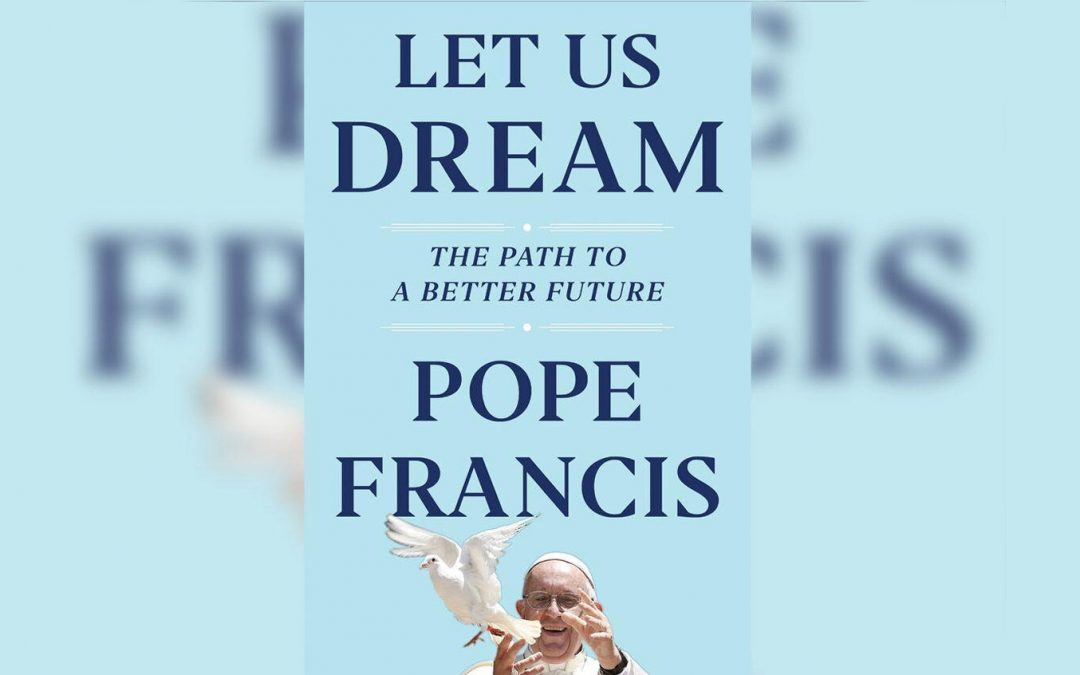Dear Friends,
What does the Pope do when bishops, priests and lay Catholics stop coming to Rome to visit? What does he do when he gets caught up on all those delayed phone calls and emails? What does he do when he is finished with appointing bishops and cardinals? If it is Pope Francis, he writes a letter to all of us. A letter that has taken the form of a book. It was just published this past week and is titled Let Us Dream.
The letter is written for our present moment. It is a letter written out of pastoral concern for us. I have only gotten through about a third of the book this week and have found it easy to read and insightful. You might buy it as a Christmas gift to yourself.
In the book, Pope Francis reflects on the blessings and challenges of living through a time of pandemic and quarantine. He reflects on three other times in his life when he was in a crisis and forced into a time of isolation from others. Let me give you a sample to encourage you to pick up the book yourself:
“Any disruption to our daily lives releases a great number of feelings and reactions. In some cases lockdown led to an increase in domestic violence because many people don’t know how to live together. There was a notable increase in aggression, in sexual and physical abuse – very painful things. But in other cases, lockdown brought to the surface fraternal feelings that strengthened bonds. Parents could play more with their children, husbands and wives could discuss matters in new depth.
A ‘stoppage’ can always be a good time for sifting, for reviewing the past, for remembering with gratitude who we are, what we have been given, and where we have gone astray.
These are moments in life that can be ripe for change and conversion. Each of us has had their own ‘stoppage,’ or if we haven’t yet, we will someday: illness, the failure of a marriage or a business, some great disappointment or betrayal. As in the Covid lockdown, those moments generate a tension, a crisis that reveals what is in our hearts.
At such moments, we need others to walk with us. Some of us are allergic to doctors, but if you want to avoid unnecessary suffering or even the risk of worse pain or illness, you need to seek guidance. The same is true when you’re suffering an internal or personal crisis; you need to find people who are wise, who have been through the fire, people who can help you navigate what is to come.
In every personal ‘Covid,’ so to speak, in every ‘stoppage,’ what is revealed is what needs to change: our lack of internal freedom, the idols we have been serving, the ideologies we have tried to live by, the relationships we have neglected. What is the greatest fruit of a personal Covid? I’d say patience, sprinkled with a healthy sense of humor, which allows us to endure and make space for change to happen.”
The book is divided into three parts following the traditional “see, judge, act” approach. It ends with a poem from a Cuban actor living in Miami, Alexis Valdes, written in the midst of one of the lockdowns. Like the book itself, the poem expresses great hope in the midst of present challenge.
Peace,
Fr. Damian



